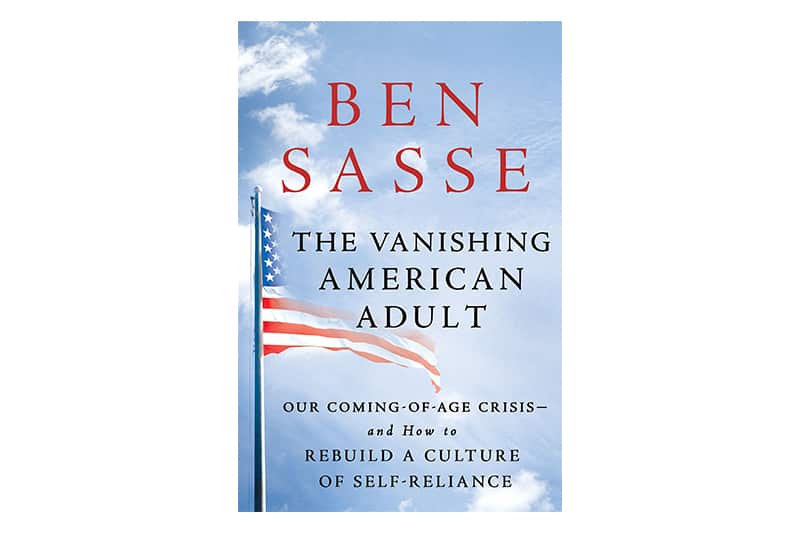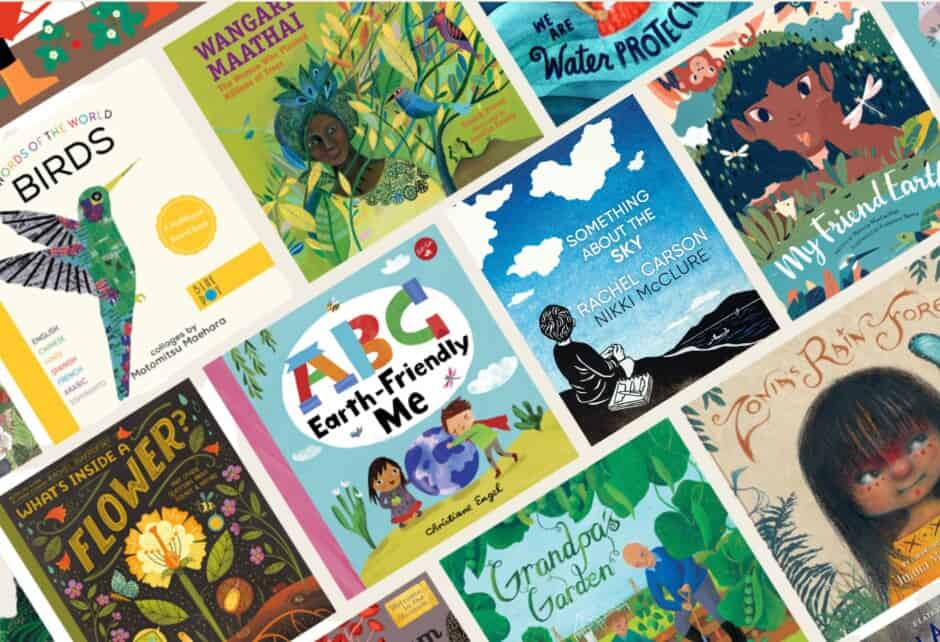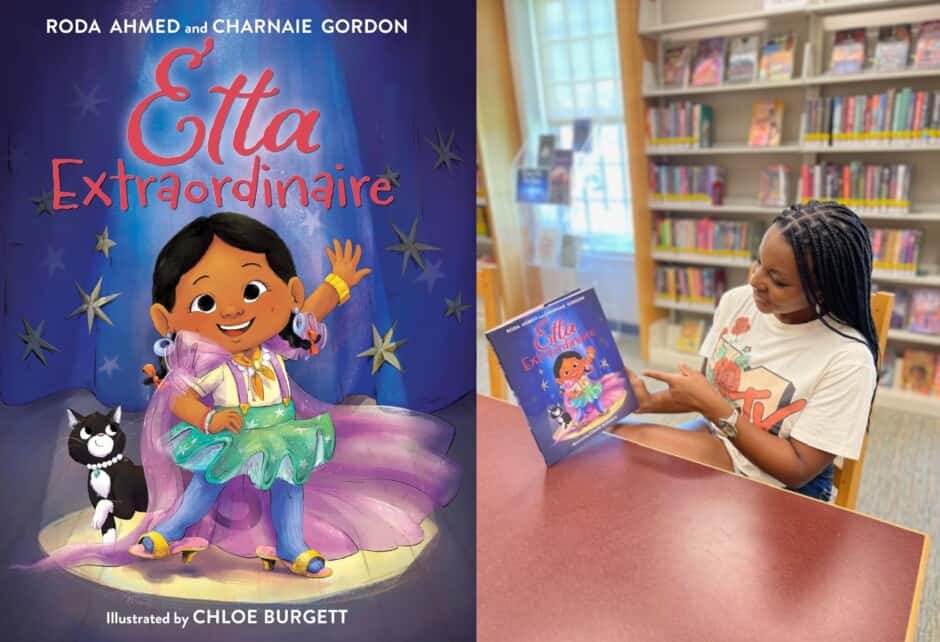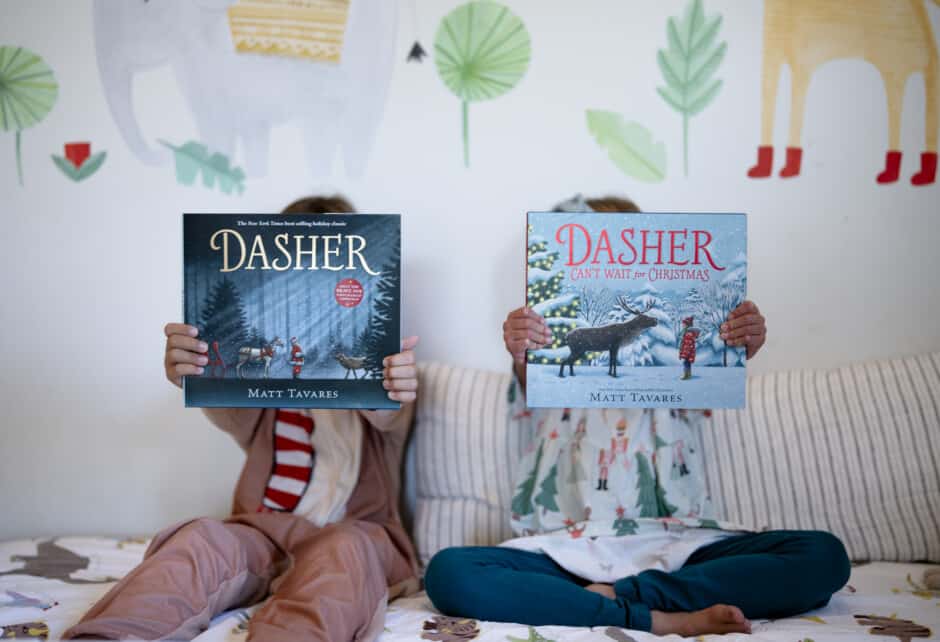
Book Review: The Vanishing American Adult
Written by KATE MACLEAN
Photography by PHOTO VIA AMAZON
To call Ben Sasse’s new book dense and leaden, would be to infuriate the author not for his pride (the freshman senator from Nebraska is a seasoned veteran to criticism), but for his fear of Americans unable to handle something as simple as a book of nonfiction. (This reviewer of the book—more recently accustomed to the beautiful rhyme and brevity of a children’s library—picked it up no fewer than three times before she was able to read without falling into a blissful and much needed sleep). Sasse is a historian by training (Yale) and his proclivity for the historical—and often superfluous—anecdote is what make the reading thick and wandering.
While The Vanishing American Adult (out last month, St. Martin’s Press) may not be the page-turning beach thriller you grab for this summer, it is a worthy, if incomplete, reflection of how American parents are raising their children and a plea for us to do so more intentionally.
Sasse (a leading Republican force behind #NeverTrump) sees a country of the indulged and shiftless. In an interview on the Politico podcast last week, he says of the President he “comes out of a reality TV world, and I have lots of anxiety about whether or not that kind of world is really what we want for our kids”. Sasse sees this celebrity presidency as an emphatic exclamation on the country’s priorities and our collective unravelling integrity. He insists on our need to change in order to save the republic. He says of the country, “we are a drifting and aimless people—awash in material goods and yet spiritually aching for meaning. Obviously, Washington is a terribly broken and dysfunctional place, but the larger share of what ails us as a nation is well upstream from politics. Culturally, we are a mess.”
If you wade through the historical meanderings, put aside his conservative political agenda, and forgive him the nerdy and imagined Roosevelt graduation speech (that serves as a coda to the book), you find a father of three deeply alarmed at the state of the American adolescent. At the core of his alarm are helicopter parents, endless screen-time, and the American parental tendency to coddle.
The statistics Sasse lends are indeed alarming. According to a 2015 Common Sense Media study 13-18 year old Americans spend on average nine hours a day on non-school related screens; 8-12 year olds spend an average of six hours a day. He adds another from PEW that reveals for the first time in 130 years, 18-34 year olds are more likely to live with their parents than with a spouse or partner.
Of course these two statistics, while unnerving for many, aren’t inherently correlated. A teenager who spends too much time on her smartphone isn’t by virtue sentenced to pass her 30s in her parent’s basement. There are other explanations of course (the Great Recession being just one that comes to mind). But, his worry strikes a chord and his suggestions for redemption are worthy to note and create a book that is more how-to than political manifesto. Sasse implores American parents to provide the following values for their children:
- Hard Work for Kids. You can’t read an article about Sasse without a passing reference to his corn detasseling days. Sasse expounds the value of hard work and wonders at our fear to protect our children from the physically demanding. He and his wife sent their young teenage daughter for a stint on a cattle ranch, and he tweeted a collection of her text dispatches. He states simply: “We think it’s important for our kids to suffer.” Sasse isn’t advocating everyone send their child to work on a farm (though he would love it if we did), but rather, he is calling on parents to foster a healthy and strong work ethic in children at a young age; through chores, through shadowing parents at work; through constant conversation of the future.
- Consume Less. We are mistaking want with need, convenience with necessity. Sasse suggests a simple exercise of monitoring how much of a certain behavior you or your kids partake in. For example, simply noting how many hours your kids play video games a day/ a week, or how quickly you and your partner ate up Master of None, or how much you’ve spent on nonessentials on the last trip to Target. The first step is observation, Sasse maintains, and then armed with this knowledge, the hope is you will be empowered to consume less.
- Age de-segregation. Sasse worries about the insulation of teenagers from the extreme ends of life and urges their exposure to both birth and death, “Isolating birth from everyday life is neither natural nor healthy. Birth, like death, speaks to our whole person. The encounter with such visceral, bodily functions reveals something undeniable about reality as it is, beyond artifice and contrivance. Birth, like death, forces us to face fundamental human questions. It is a humbling reminder that life is larger than you.” In a culture where our old are housed in separate, all-inclusive condominiums and our young are birthed in sterile and isolated rooms, our teenagers very rarely get exposure to either of the bookends of life.
- More Travel: Sasse insists your kids don’t have to backpack through Europe but need to—at the very least—get out of town and drive to the next one. Spend time there. He suggests a minimum of 60 days. If you live in the city, he says live as a family in the country for two months. (There are, conveniently, no helpful steps to making this feasible or affordable for the average American family). The goal here is to challenge your child’s perspective. “There is not any one place your kids must go. Nor is there any one particular moment at which it must happen. The central goal to have in mind for your budding travelers isn’t complicated: acquiring vivid contrasts. We are trying to help adolescent eyes focus for the first time on the sea of assumptions in which they swim at home.” He encourages parents to allow their teenage children to travel alone, to encourage teens to plan a family trip, and even to bring your kids with you on work trips.
If you’re thinking these are tips for the children suffering from affluenza in our country, you are not alone. The New York Times called the book a “self help book for well-to-do parents”, and given the gravity of the current political climate, one can’t help but wonder if a senator might have more pressing concerns than a book tour. And yet, to paraphrase the senator, our children are the future of the republic and everyone could do with a little less screen-time.
Share this story




